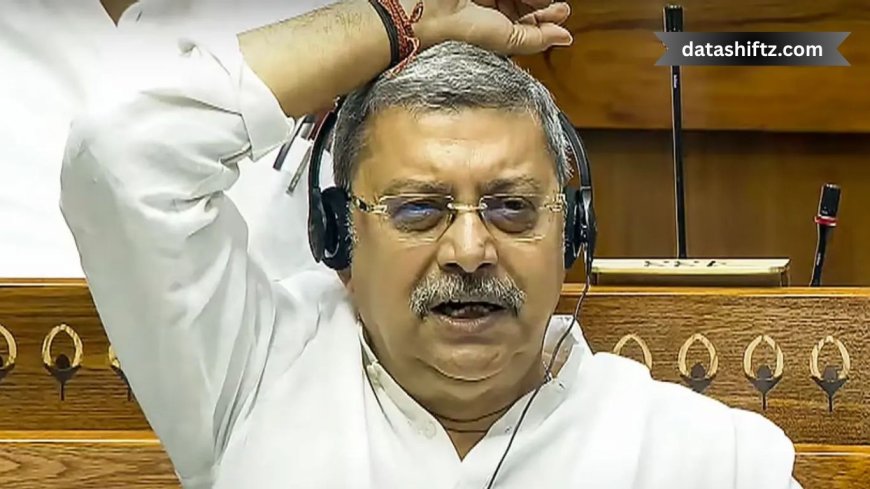Kalyan Banerjee in the Spotlight: TMC Power Struggles Unfold

Today, Trinamool Congress (TMC) stalwart Kalyan Banerjee—a senior MP representing Serampore and a seasoned Supreme Court advocate—has made headlines following dramatic internal developments within TMC’s parliamentary wing. These events reflect escalating tensions with fellow MP Mahua Moitra, leading to a high-profile resignation and public exchanges that have captured national attention.
Events of August 4–5, 2025
On August 4, 2025, Kalyan Banerjee submitted his resignation as TMC’s Chief Whip in the Lok Sabha, citing failure to manage coordination among MPs, several of whom rarely attend sessions. His departure came amid escalating friction with Mahua Moitra, prompting a sharp fallout.
Simultaneously, internal restructuring saw Abhishek Banerjee elevated to TMC’s parliamentary party leader in the Lok Sabha, replacing the ailing Sudip Bandyopadhyay, in a move orchestrated by Chief Minister Mamata Banerjee.
Anatomy of a Party Rift and Fallout
The tension surfaced after Moitra labeled Kalyan Banerjee “anti-women” and compared him to a “pig” during a podcast. In retaliation, Banerjee demanded an apology, calling her language dehumanizing and beneath parliamentary decorum.
Public exchanges further intensified, with Banerjee accusing Moitra of misogyny and Moitra dismissing him with the metaphor, “you don’t wrestle with a pig”—a remark he considered deeply offensive. His resignation followed shortly after, triggered by party leadership’s critique of coordination deficiencies attributed to him
Timeline of Events: A Quick Overview
| Date | Key Event | People Involved | Outcome |
|---|---|---|---|
| Aug 4, 2025 | Banerjee resigns as Chief Whip | Kalyan Banerjee, TMC MPs | Highlights internal dysfunction |
| Aug 5, 2025 | Abhishek named parliamentary leader | Mamata, Abhishek | Youth-driven leadership shift |
| Aug 5, 2025 | Public fallout escalates with Moitra | Banerjee, Moitra | Deepens rift; draws national media |
Implications & Insights
-
Party Cohesion at Risk – The very public row between Banerjee and Moitra raises troubling questions over internal transparency and the capacity for civil discourse within TMC ranks.
-
Leadership Shake-up – Appointing Abhishek Banerjee as parliamentary leader indicates a pivot by party leadership toward younger, centralized authority.
-
Image Management – The resignation—not so much voluntary as reactionary—highlights TMC's tightrope walk between discipline and managing dissent.
-
Electoral Stakes – With impending assembly elections in West Bengal on the horizon, internal disruptions could weaken voter confidence in TMC’s unity.
-
Gendered Dynamics at Play – The “pig” label thrown at Kalyan by a female colleague underscores deeper cultural tensions around gender, conventional conduct, and political rhetoric.
In-Depth: Political Context and Career Background
Architect of TMC’s parliamentary coordination, Kalyan Banerjee has been a four-term Lok Sabha MP from Serampore (2009, 2014, 2019, and 2024). He also serves as Chairman of West Bengal’s HRBC and is a respected Supreme Court and Calcutta High Court senior advocate. His legal career includes high-profile land‐acquisition and civic cases, notably Rizwanur Rahman, Singur, and Nandigram cases.
In 2025, he was appointed as permanent special counsel for the West Bengal government in the Calcutta High Court—an appointment lauded by TMC but criticized by BJP, which saw it as undermining the Advocate General’s office. Earlier, he publicly lambasted central government over halted MNREGA funds to West Bengal, demanding investigation into fraud without penalizing millions of beneficiaries.
Banerjee has also made headlines for dramatic outbursts: notably smashing a glass bottle during a JPC meeting on the Waqf Bill in October 2024, leading to suspension and ethical scrutiny.
Conclusion: What Today’s News Signals
Kalyan Banerjee’s resignation as Chief Whip marks more than a procedural realignment—it’s a symbol of deeper turbulence within TMC. The acrimonious exchanges with Mahua Moitra and the leadership shift toward Abhishek Banerjee reflect both generational and ideological fissures. As the party navigates the upcoming election season, managing internal dissent and projecting unified leadership will be critical.
Tracking TMC’s ability to absorb such shocks while maintaining cohesion—and key figures like Kalyan Banerjee staying engaged without further destabilizing public disputes—will shape not just the image of the party but its electoral viability in West Bengal.





























